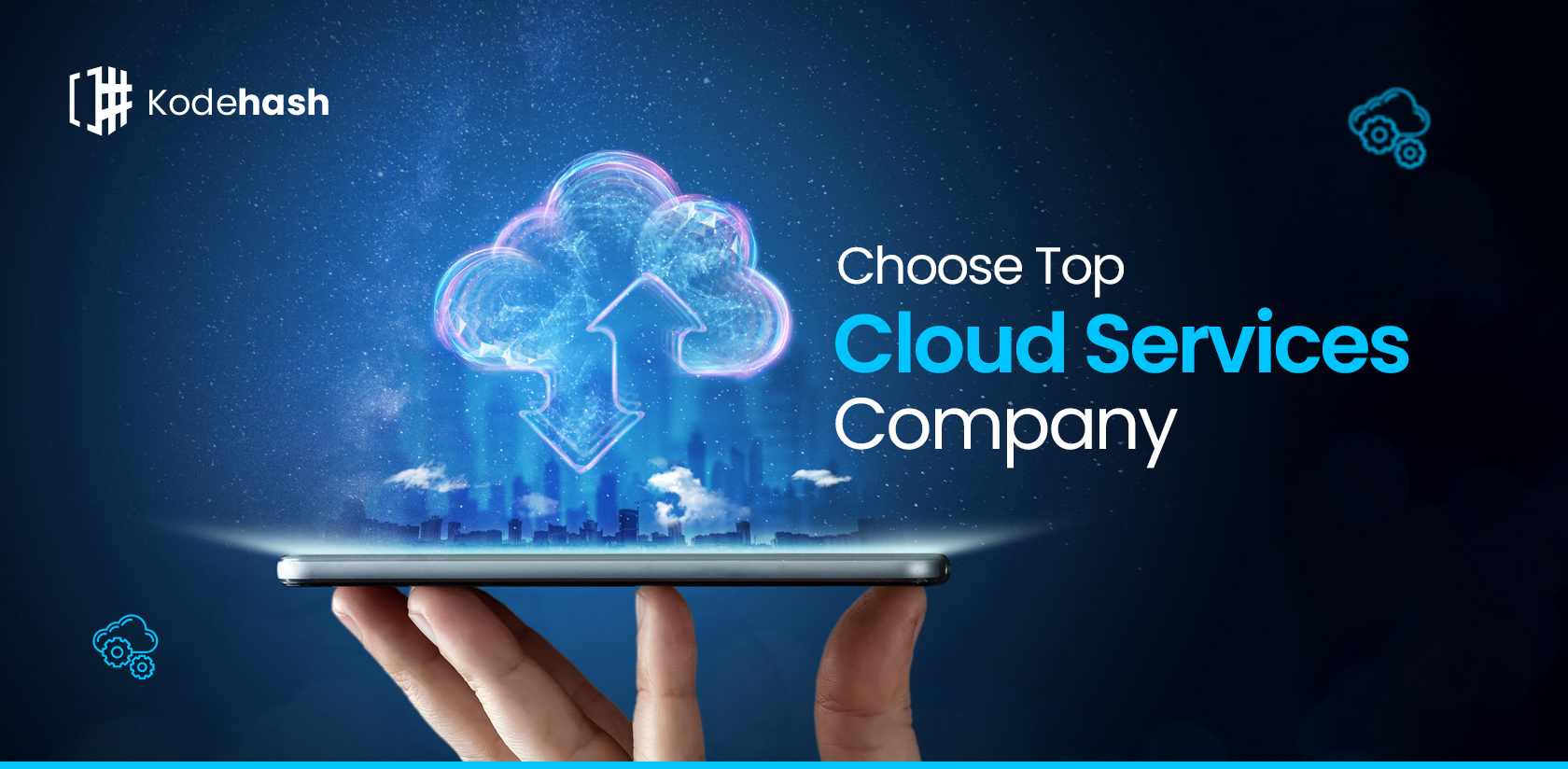How to Choose Top Cloud Services Company for Enterprise? Explained

In recent years, cloud computing has become the latest buzzword in the world of technology. Most companies are taking advantage of cloud services and have deployed cloud-based solutions. Initially businesses have turned to cloud-based models to streamline operations during difficult times, but later, they explored the numerous benefits of cloud technology and decided to hire the top cloud services company. However, the abundance of options and evolving technologies have made the selection process quite challenging.
Thus, to help you make the right decision, we have provided a detailed roadmap to help enterprises make informed choices when embracing cloud solutions.
What Is Cloud Service and its Types?
Cloud computing services allow users to access software, applications, platforms, and other resources online without worrying about managing local infrastructure or hardware. Advantages of cloud services include scalability, pay-per-use billing, high availability, and resource flexibility as cloud services are hosted and managed by third-party cloud computing vendors. There are generally four types of cloud services provided by cloud services company, including:
1. Infrastructure-as-a-Service (IaaS)
Infrastructure as a Service (IaaS) provides virtualized computing resources over the internet. IaaS forms the foundational layer of cloud services, from virtual machines to storage and networking, offering the building blocks for IT infrastructure. Amazon Web Services and Microsoft Azure are a few examples of IaaS.
2. Platform-as-a-Service (PaaS)
Platform as a Service (PaaS) simplifies application development by offering a platform with pre-configured tools and services. Developers can focus on coding, leaving the underlying infrastructure and maintenance to the PaaS provider.
3. Serverless computing
Serverless computing lay emphasis on designing app functionality without wasting time managing the servers and infrastructure. The cloud services provider manages the setup, capacity planning, and server management on your behalf.
4. Software-as-a-Service (SaaS)
Software as a Service (SaaS) delivers fully functional applications over the internet, reducing the need to deploy, manage, and maintain software to zero. SaaS applications can easily be accessed via a web browser.
Factors to Consider When Selecting a Cloud Services Company
The list of the factors includes:
Technologies & Services
Hire a cloud service provider that supports your company’s technologies and deploy the ones that align with your business’ objectives. Most cloud service providers claim to offer the latest technology solutions but offer limited support, and you need to fill this gap.
Ask whether the cloud provider’s architecture, standards, and solutions back your workloads and management preferences? Also has the cloud provider done similar deployments you look for in the past or not? Getting an answer to these questions would help you accomplish your vision.
Cost
Evaluate the overall cost and try to understand the provider’s pricing model. As your enterprise grows, look beyond the initial costs, such as any long-term expenses, potential hidden fees, and scalability costs. Several cloud providers charge high prices to new customers, while many offer discounts as well, so pay attention to the amount charged by the provider.
Compliance
While selecting a cloud services company, businesses must consider the implications of federal, state, and industry regulations. Verify that the cloud provider adheres to industry-specific compliance standards and regulations. This is important, especially for enterprises in highly regulated sectors like finance or healthcare. The cloud providers must provide a clear statement of shared responsibility for compliance and answer the questions related to compliance with specific regulations. For instance, certain rules might restrict customer data storage, transfer, or processing to cloud providers. Thus, knowledge about the same is essential.
Ease of Use
When choosing a cloud services company, consider the feedback of the existing and past customers. Also, to save your employees’ precious time regarding using cloud computing platforms or applications, check whether the company provides an intuitive and user-friendly interface.
Features & Functionality
As mentioned, cloud service companies will offer different features and functionalities. When choosing the right cloud provider, you first need to assess your business needs and select the one that can offer the required features and functions. A helpful tip is to list all the features you need and then shortlist a few cloud service providers based on that.
Customer Support
No matter how good and reliable a cloud service provider is, nothing will work out if you are not getting customer support. Look for a provider who can immediately assist in case something goes wrong. Thus, carefully consider customer service and technical support while choosing a cloud service provider. Though customer support is included, the quality of customer service varies from company to company. Check the reviews and testimonials shared by the customers to get transparent answers.
Final Words
Choosing the right cloud services company requires careful consideration of various factors, ranging from security and compliance to performance, pricing, and support. One can make a more informed decision by conducting thorough research, evaluating potential providers based on your company’s needs, and considering long-term objectives.
With the right cloud provider like Kodehash Technologies by your side, your business can enjoy extraordinary results. Just make sure you are taking the choosing process slowly and thoughtfully. So, elevate your cloud journey with us.
Recent Blogs
Subscribe:
Subscribe for the newsletter and receive email notification of every future post.




